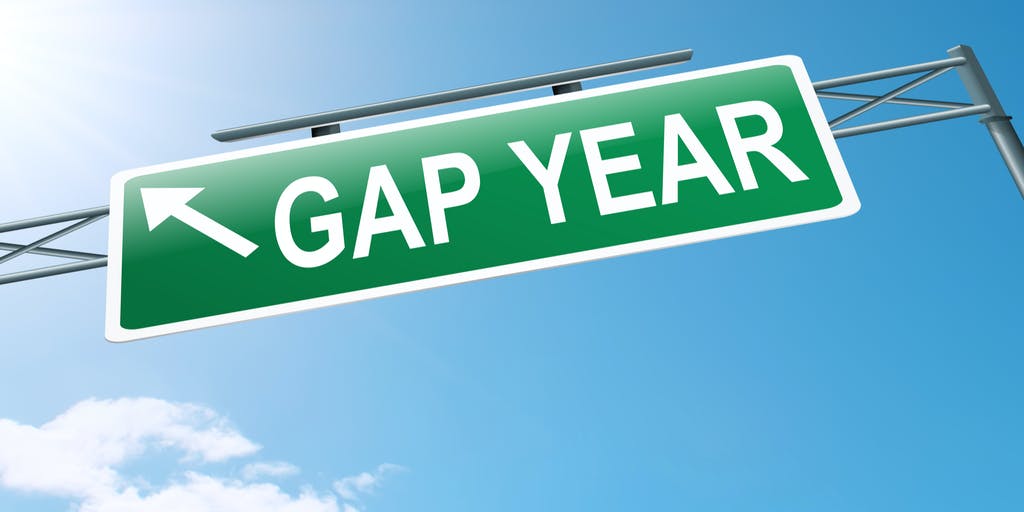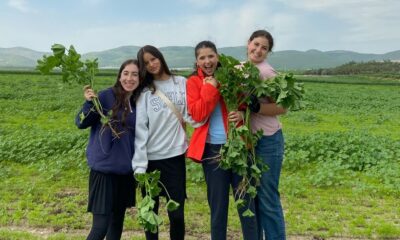
Featured Item

Pandemic rips hole in students’ gap year
Published
3 years agoon
By
Jordan MosheWhether spent in Israel or elsewhere, a gap year is considered a rite of passage by most Jewish youngsters just out of matric. Yeshiva, seminary, kibbutz, backpacking and touring offer formative experiences and memories that last a lifetime, coupled with a sense of freedom and independence.
But with the virus still rampant, is there still something to look forward to, or does the pandemic mean a year of disappointment?
“COVID-19 will affect a large part of my gap year,” says Dean Chaitowitz, a Yeshiva College graduate who is to go on Bnei Akiva’s MTA (Midreshet Tora v’Avodah) programme. “There has been much uncertainty with regards to the programme, making it difficult to prepare for the year ahead.”
Chaitowitz will be spending the year in Jerusalem at Yeshivat Eretz Hatzvi. Beyond learning, the MTA programme typically includes a considerable amount of touring across Israel, as well as leadership seminars and a summer trip to Poland.
Says Chaitowitz, “All these activities may not happen if the COVID-19 situation in Israel doesn’t improve, having a major impact on the year.
“I was excited to see friends and family and build friendships with individuals from all over the world, but due to the strict system that the programme has in place to keep our group in a ‘capsule’, this will be difficult.”
Fellow Yeshiva College graduate, Dani Sack, is also hoping to go on the MTA programme and attend Midreshet Harova in the Old City.
“They have told us that we must prepare to leave at any time between 3 and 10 February, but nothing is confirmed and we’re still waiting to book tickets,” she says.
“COVID-19 has affected so many aspects of my gap year. Having no idea when we’re leaving has been a cause of anxiety, plus knowing that leaving means entering into a 10-day quarantine only amplifies that.”
Sack says students at the midrasha will be assigned to capsules, meaning that she can socialise only with her fellow South Africans and Australians in the MTA group.
“We won’t get to see much of the American, British, or Israeli students, which is usually a large part of the programme,” she says.
King David Linksfield graduate Brad Gottschalk is also waiting for a definitive departure date for Habonim’s Israel gap year programme, Shnat. The programme involves travelling and living across Israel while engaging in activities like kibbutz stays and more.
“The departure date is very up in the air at the moment based on the Israeli lockdown and its stance on international travel,” he says.
“Cases in Israel remain quite high, and with [Benjamin] Netanyahu’s image at stake, he’s making decisions which are beneficial to his public image, which means keeping cases as low as possible and successfully thrusting the vaccination drive forward.
“Last year’s Shnatties arrived to a COVID-19 free Israel, but were almost immediately caught up in lockdowns, masks, and social distancing. This meant that their year had to be restructured to be as safe and logistically sound as possible, and our year is going to look much like theirs because we are still in a similar situation.”
Those who embarked on or planned a gap year in 2020 didn’t have it easy either. Sarah Saacks, who went on MTA last year, enjoyed six weeks of normality at Midreshet Harova before things took a turn.
“The changes to my year started out slowly, and then all at once,” she says. “Our Purim party with international and Hebrew students was cancelled. This seemed inconvenient at the time, but we were fine with the sacrifice. Next came tracking all our public transport, but it wasn’t such a worry.
“A few days later, Israel went into a full lockdown, our midrasha had to ask us to leave, and our gap year was put on hold. We were devastated, but we couldn’t fully comprehend what was happening.”
While most of her friends returned home, Saacks opted to remain with family in Israel, determined to make the most of her gap year. She was later able to resume the programme, albeit under strict pandemic protocols and at the expense of much of the typical MTA experience.
“I’ve spent almost the entire year since the pandemic broke out trying to understand what happened and making peace with missing out on what I expected to experience,” she says. “Sure, I may have been ‘cheated’ in some way for not having the experiences I signed up for, but I gained so much this year that in hindsight, I couldn’t have imagined the year going any other way.”
For Gabriel Katz, the pandemic meant scuppering his gap year plans altogether, having planned to travel to Japan to watch the Olympics and train in the Tokyo and Okinawa dojo.
“I was supposed to leave at the beginning of June,” says Katz. “However, then Prime Minster Shinzo Abe declared a state of emergency in April, cancelling all flights and postponing the Olympics. All my plans were immediately halted, and any other ideas such as travelling to central Europe were also on a steep downward slope.”
Katz was initially extremely upset, having saved for the gap year since the age of 10. This feeling was soon replaced with a sense of relief, however, as media coverage of the first wave started trickling in with images of packed hospitals, empty streets, and stranded foreign nationals in major airports.
“I started to focus on what was possible here as I knew that South Africa was going to be placed in a similar position,” he says. “I ramped up my music lessons, which would soon become virtual, as well as looking at new hobbies such as sewing.” Katz also assisted the Chevrah Kadisha, and later landed an online job during the course of the year.
“I do feel that I lost the year I was hoping for, but it’s not all a waste,” he says. “I’ve developed many new skills and become more introspective.
“This has been quite transformative for me, as I have realised that with all the chaos swirling around there is never any certainty in life and we ought to recognise the significance of the present.”
While they may not have the year they’d like, Chaitowitz, Sack, and Gottschalk are all determined to make the most of their overseas experiences and agree that Israel is one of the safest places to be.
Says Sack, “I want to grow in my independence, my Judaism, and my relationships. COVID-19 put a lot of that on pause during 2020, so please G-d, 2021 allows it to play out fully again.”
“Gap years are about taking challenges as they come,” says Gottschalk. “No year is ever perfect or exactly to plan, that’s where we are given the opportunity to grow.
“Life always throws something into the mix which ruins plans. It’s how we react to these unexpected blips which define whether or not we have a meaningful year.”










